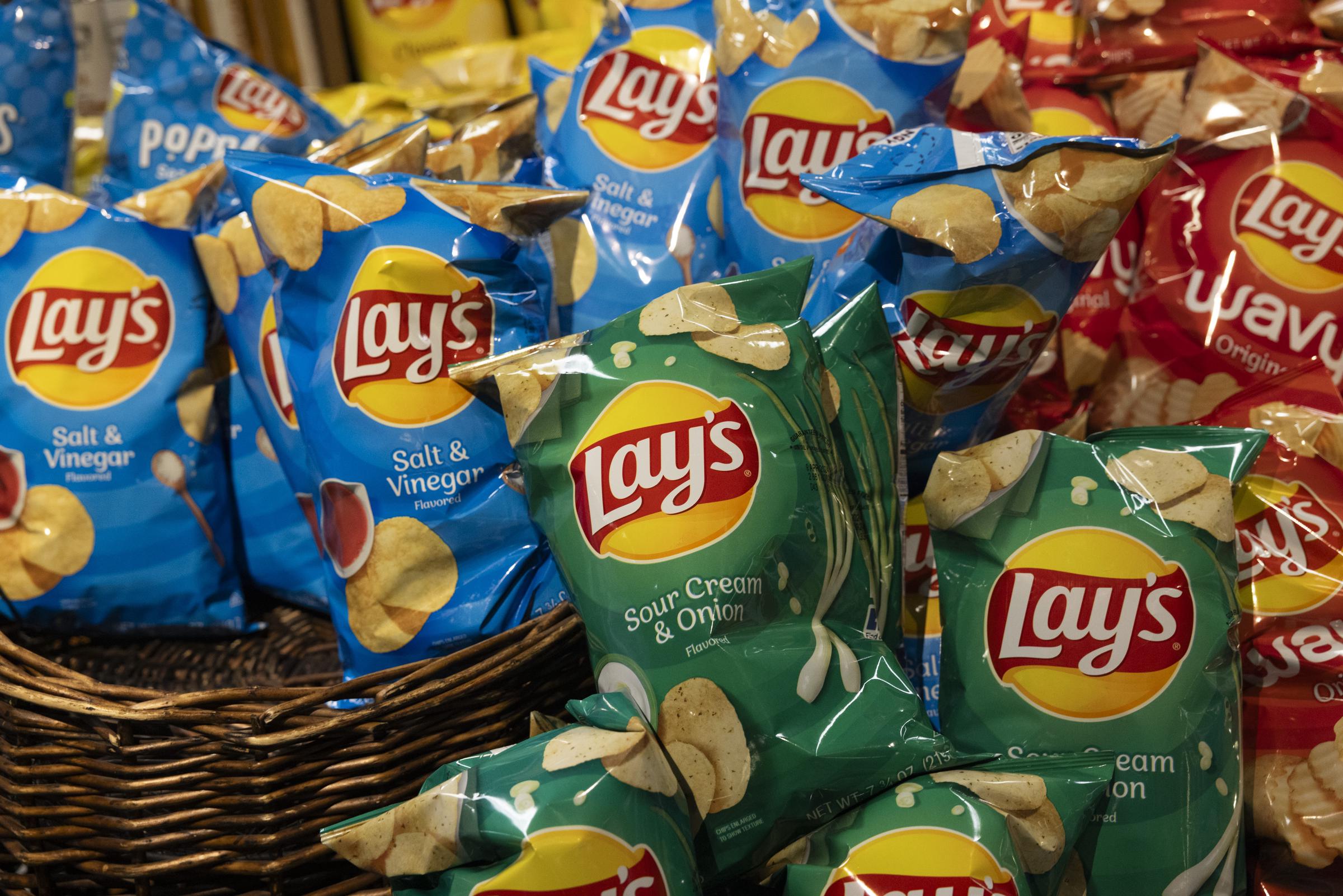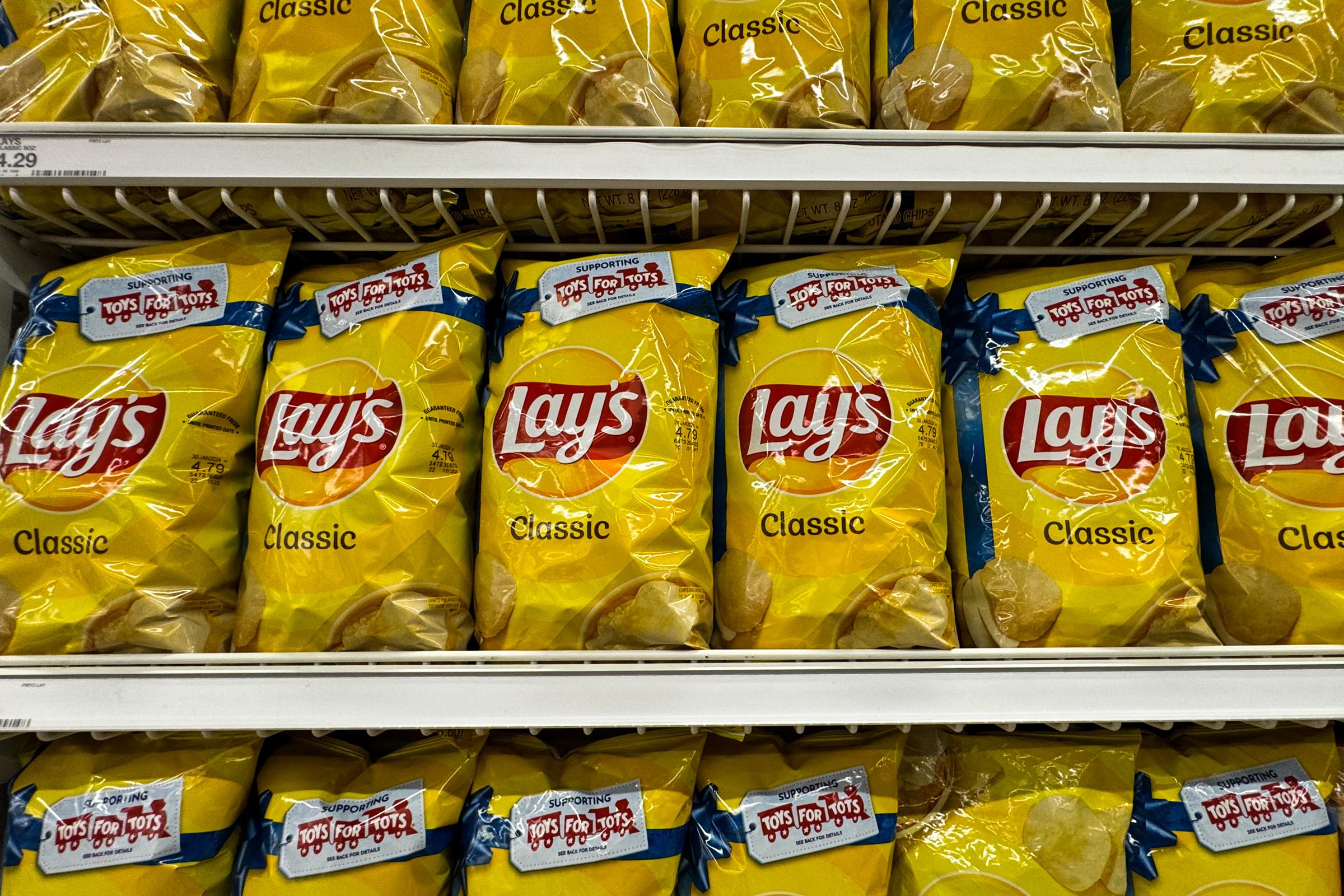Frito-Lay, one of the most recognized snack manufacturers, has issued a limited recall of their Lay’s Classic Potato Chips. The announcement was made on December 16 after the company received a consumer alert. The recall was initiated due to the presence of undeclared milk in select 13-ounce bags of the product, posing a serious health risk for individuals with milk allergies or sensitivities.
This issue has sparked concerns among customers and emphasizes the importance of allergy awareness and food safety.

The Scope of the Recall
According to Frito-Lay, the recall specifically targets Lay’s Classic Potato Chips distributed to certain retail and online outlets in Oregon and Washington. Customers could have purchased the affected products as early as November 3, 2024.
The recall notice advises consumers to check for the following product details:
- Guaranteed Fresh Date: February 11, 2025
- UPC: 28400 31041
- Manufacturing Codes: 6462307xx or 6463307xx
If any of these identifiers match, the product should not be consumed, especially by individuals with milk allergies. The company recommends discarding the product immediately to avoid potential health risks.
Thankfully, no allergic reactions related to the recalled chips have been reported so far.


Frito-Lay’s Commitment to Safety
A Frito-Lay representative assured customers of the company’s commitment to consumer safety and transparency. In a statement to Newsweek, the representative clarified that no other Lay’s products—whether in different flavors, sizes, or variety packs—are affected by the recall.
The company also encourages affected customers to contact their Consumer Relations team at 1-800-352-4477 during regular business hours for further assistance.
Two days after the recall announcement, the U.S. Food and Drug Administration (FDA) amplified the notice on its website, ensuring public awareness of the situation.
Understanding Milk Allergies
Milk allergy is one of the most common food allergies, particularly in children. It occurs when the immune system mistakenly identifies milk proteins—such as casein or whey—as harmful, triggering an allergic reaction.
Reactions can range from mild to severe, with symptoms including:
- Immediate Reactions: Hives, swelling, wheezing, vomiting, or itching around the mouth.
- Delayed Reactions: Abdominal cramps, diarrhea, or respiratory symptoms like a runny nose.
In severe cases, a milk allergy can lead to anaphylaxis, a life-threatening reaction that requires immediate medical attention. Symptoms of anaphylaxis include difficulty breathing, a rapid drop in blood pressure, and shock.
Distinguishing Milk Allergy from Lactose Intolerance
It’s important to differentiate between a true milk allergy and lactose intolerance. Unlike milk allergies, lactose intolerance is a digestive issue caused by the body’s inability to break down lactose, a sugar in milk. Symptoms such as bloating, gas, and diarrhea are less severe and do not involve the immune system.
Managing Milk Allergies
For individuals with milk allergies, the best preventive measure is strict avoidance of milk and milk-containing products. This includes reading food labels carefully for terms like “casein,” “whey,” or “lact-” (e.g., lactose or lactate), which indicate the presence of milk proteins.
Additional Tips for Managing Milk Allergies:
- Dining Out: Always inform restaurant staff of the allergy and ask about food preparation. Even seemingly dairy-free dishes like seafood or steak may be cooked with butter.
- Epinephrine Access: Individuals at risk of severe reactions should carry an epinephrine injector, such as an EpiPen, at all times.
- Emergency Preparedness: Wearing a medical alert bracelet or necklace can help in case of accidental exposure.
- Nutrition Planning: Avoiding milk products may lead to deficiencies in calcium, vitamin D, and other essential nutrients. Consulting a healthcare provider or dietitian can help create a balanced diet and determine if supplements are necessary.
Parents of children with milk allergies should also remain vigilant, particularly when choosing infant formulas or introducing solid foods.
The Bigger Picture: Food Safety and Allergies
This recall highlights the critical importance of food labeling and consumer safety. For individuals with food allergies, undeclared allergens can pose significant risks. Companies like Frito-Lay play a vital role in maintaining public trust by promptly addressing such issues.
Consumers are encouraged to stay informed about product recalls and practice caution when trying new foods, especially if they or their loved ones have known allergies.
Frito-Lay’s swift response to the issue demonstrates their dedication to protecting consumers. By staying vigilant and adhering to safety guidelines, families can enjoy their favorite snacks without compromising health.

